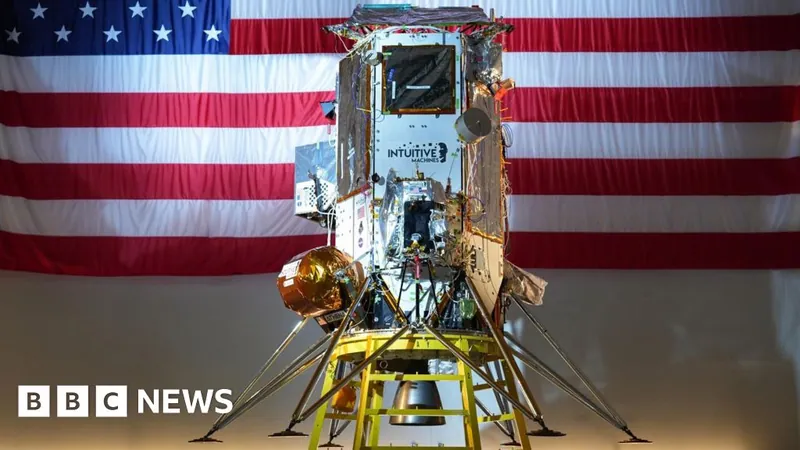
Revolutionizing Data Storage: The Bold Move to Space-Based Data Centres
2025-04-09
Author: Michael
A Lunar Leap for Data Security
Imagine a data centre on the Moon—sounds like a plot twist from a sci-fi blockbuster, right? But for Stephen Eisele, president of Lonestar Data Holdings, this futuristic vision is just around the corner. He asserts that placing data centres in space will provide unmatched security.
The First Steps in Lunar Data Storage
Last month, Lonestar made history by testing a compact data centre, no bigger than a hardback book, which was transported to the Moon aboard the Athena Lunar Lander, launched by SpaceX. This pioneering effort is just the beginning of what could be a data revolution.
Why Space? The Struggle for Terrestrial Locations
In an age where artificial intelligence (AI) use is skyrocketing, the demand for data storage is hitting unprecedented levels. According to McKinsey, the need for data centres is expected to surge by 19% to 22% by 2030. However, finding suitable sites on Earth is a challenge—communities are increasingly resistant to having large data centres built nearby, due to their energy demands and environmental impact.
The Advantages of Orbiting Data Centres
By shifting data centres to space, companies hope to sidestep these local controversies. The limitless solar energy available in space could power these centres, and with no neighbors, the environmental concerns are minimized. Furthermore, space-based centres could cater specifically to the burgeoning needs of spacecraft and other space facilities, allowing for faster data transfer.
Progress on Space-Based Solutions
A recent European Commission-funded study revealed that deploying data centres in orbit could not only transform Europe’s digital landscape but also be more eco-friendly. Thales Alenia Space is working on a plan to create a constellation of satellites with a combined data processing power equivalent to a mid-sized ground-based data centre.
The Challenges Ahead
Despite optimism, experts like Dr. Domenico Vicinanza caution that significant obstacles remain. Launching equipment into orbit continues to be prohibitively expensive, with each kilogram costing thousands of dollars. Furthermore, cooling systems face challenges in microgravity, and space debris presents a constant threat.
But There's Hope!
Companies like Lonestar remain undeterred. Aiming to launch a small data centre into lunar orbit by 2027, they are already fielding requests from various customers, including government entities. Chris Stott, Lonestar’s CEO, emphasizes that these futuristic data centres not only enhance security by minimizing reliance on terrestrial networks but also comply with data sovereignty regulations, essentially making them embassies in space.









 Brasil (PT)
Brasil (PT)
 Canada (EN)
Canada (EN)
 Chile (ES)
Chile (ES)
 Česko (CS)
Česko (CS)
 대한민국 (KO)
대한민국 (KO)
 España (ES)
España (ES)
 France (FR)
France (FR)
 Hong Kong (EN)
Hong Kong (EN)
 Italia (IT)
Italia (IT)
 日本 (JA)
日本 (JA)
 Magyarország (HU)
Magyarország (HU)
 Norge (NO)
Norge (NO)
 Polska (PL)
Polska (PL)
 Schweiz (DE)
Schweiz (DE)
 Singapore (EN)
Singapore (EN)
 Sverige (SV)
Sverige (SV)
 Suomi (FI)
Suomi (FI)
 Türkiye (TR)
Türkiye (TR)
 الإمارات العربية المتحدة (AR)
الإمارات العربية المتحدة (AR)